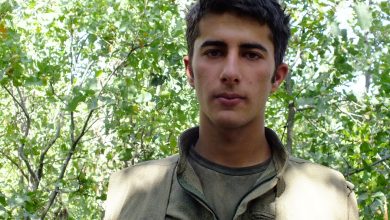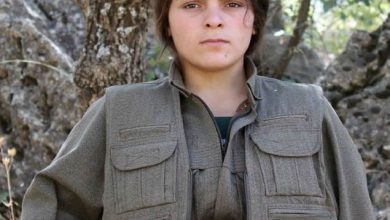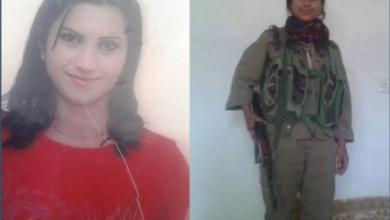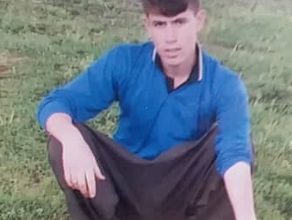Three and a half years in an environment full of restrictions, harsh training, and false promises was a bitter experience that Kamiyar has now learned from, carrying a cautionary message for other young people: Don’t fall for the attractive promises of the virtual world.
The recruitment of teenagers and young adults by armed groups is one of the complex security and social dilemmas in Iran’s border regions. Groups such as PAK (Kurdistan Freedom Party) and other similar movements leverage digital tools and social media networks to lure adolescents by painting a deceptive picture of a prosperous life, a brilliant future, and unrestricted freedom. These promises often include financial rewards, high salaries, marriage, luxury cars, and even immigration to Europe, making them highly tempting to vulnerable youth. However, the reality is that the group’s main objective is to exploit the energy and manpower of young people for their own aims.
The Role of Family and Psychological Conditions
The family and psychological conditions of teenagers are a critical factor that facilitates their recruitment by these groups. Family disputes, social restrictions, a lack of emotional support, and economic deprivation intensify feelings of failure and a lack of psychological security in adolescents. Teenagers who feel their voice is not heard or their desires are ignored become more susceptible to the deceptive promises of armed groups, which increases the likelihood of them making hasty and dangerous decisions.
Cases like the experience of Kamiyar Veisi-Rad illustrate how family conflict and the limitations of daily life set the stage for groups to deceive teenagers. The promises of luxury and migration, even if unrealistic, can lead adolescents to choose a dangerous and illegal path, spending crucial years of their lives in a violent and harmful environment. Analyzing this trend not only highlights the importance of family education and emotional support for youth but also the necessity of media warnings and public awareness campaigns about the groups’ methods of deception.
Introducing Kamiyar Veisi-Rad
Kamiyar Veisi-Rad, born on 06/04/2002 in Javanrud, holds a middle school certificate and currently works as a salesman in the Javanrud market. Due to a dispute with his family (a refusal to buy him a car and other amenities) in June 2019, while he was a high school student, he connected with a member of the armed PAK group named “Hawraz Pawe’i” via Instagram. He shared his family problems and disagreements with him. This individual then deceived Kamiyar with promises of “marriage, a house, a luxury car, many amenities, and ultimately, asylum in Europe.” Kamiyar ran away from home and joined the armed PAK group. However, after three years and six months of cooperation and companionship with the group, he fled the headquarters and returned to Iran on March 18, 2023.
Interview with Kamiyar Veisi-Rad
Q: What led you to decide to join the PAK group?
Kamiyar: At the time, I was a high school student and, like many teenagers, I had dreams that my family couldn’t afford: having a car, a bit of independence, maybe more freedom. These disagreements and restrictions had strained my relationship with my parents, and arguments were constantly escalating. My teenage stubbornness also made things worse. During this period, I met someone named Hawraz Pawe’i on Instagram. On the surface, he was just a virtual friend who listened to me and understood me. Slowly, the conversations got more serious, and he made promises that were tempting for a teenager: a house, a luxury car, marriage, a comfortable life, and finally, a path to migration in Europe. These promises were so attractive that I unknowingly trusted him, thinking I might have found a way to escape my limitations.
Q: Why did you decide to leave home without telling anyone?
Kamiyar: At that age, I lacked experience and was naive. The family problems and emotional pressure drove me to try and prove myself. When someone from across the border kept talking about a dream future, I instinctively thought this was the opportunity I needed to seize. One day, I decided to leave home without telling my family, thinking that after a few months, everything would be better. But the truth was the exact opposite.
Q: What was your impression when you entered the PAK group?
Kamiyar: The moment I arrived at the headquarters, all my dreams were shattered. It bore no resemblance to the photos and videos I had seen on social media. There was no freedom, no facilities, and none of the promises were kept. The environment was more like a prison: high walls, guards, and severe restrictions. From the very first day, I felt trapped. Daily life was full of coercion and limitation: ideological classes in the mornings about the group’s history and goals, followed by military training and exhausting exercises, and sometimes heavy labor within the headquarters. Personal freedom was meaningless, and the only thing abundant was the empty slogans and broken promises of the commanders; they constantly spoke of the “liberation of Kurdistan,” but in reality, our lives were restricted to endless classes.
Q: What was your contact with your family like during that time?
Kamiyar: For a while, I wasn’t allowed to make any calls at all. I knew my family was looking for me, but there was nothing I could do. After a few months, I managed to send a short message. It was very difficult for me when I realized the suffering my family had endured—my parents, who were struggling economically and alone, trying to find a way across the border but being denied permission to see their son. That was one of the bitterest moments of my life.
Q: Did you ever consider escaping?
Kamiyar: Many times. But escaping wasn’t easy. Those who tried and were caught were subjected to humiliation, beatings, and imprisonment for a period. This deterred me. I constantly told myself, “A few more months, a few more weeks…” until three and a half years passed.
Q: How did you finally manage to return?
Kamiyar: After three and a half years, I was exhausted and hopeless, and fear no longer meant anything to me. In March 2023, an opportunity arose, and I managed to flee the headquarters. The journey was difficult and dangerous, but I finally made it back across the border. March 18, 2023, was the day I felt like I was truly breathing again.
Q: Looking back now, how do you feel?
Kamiyar: I have great bitterness in my heart. I spent three and a half years of the best period of my youth in an environment that bore no resemblance to real life. Their promises were all lies. If I could go back in time, I would never choose this path. Today, all I want is a simple, peaceful life and to be with my family.
Q: What message do you have for other young people?
Kamiyar: Don’t be fooled by the attractive promises of the virtual world. There is no real future behind any of these groups. Armed groups only exploit your problems and emotions. There’s no luxury house, no latest-model car, and no guaranteed asylum. Everything is just slogans and regret. I was a victim of this deception, but I hope no other young person ever goes down this path.






